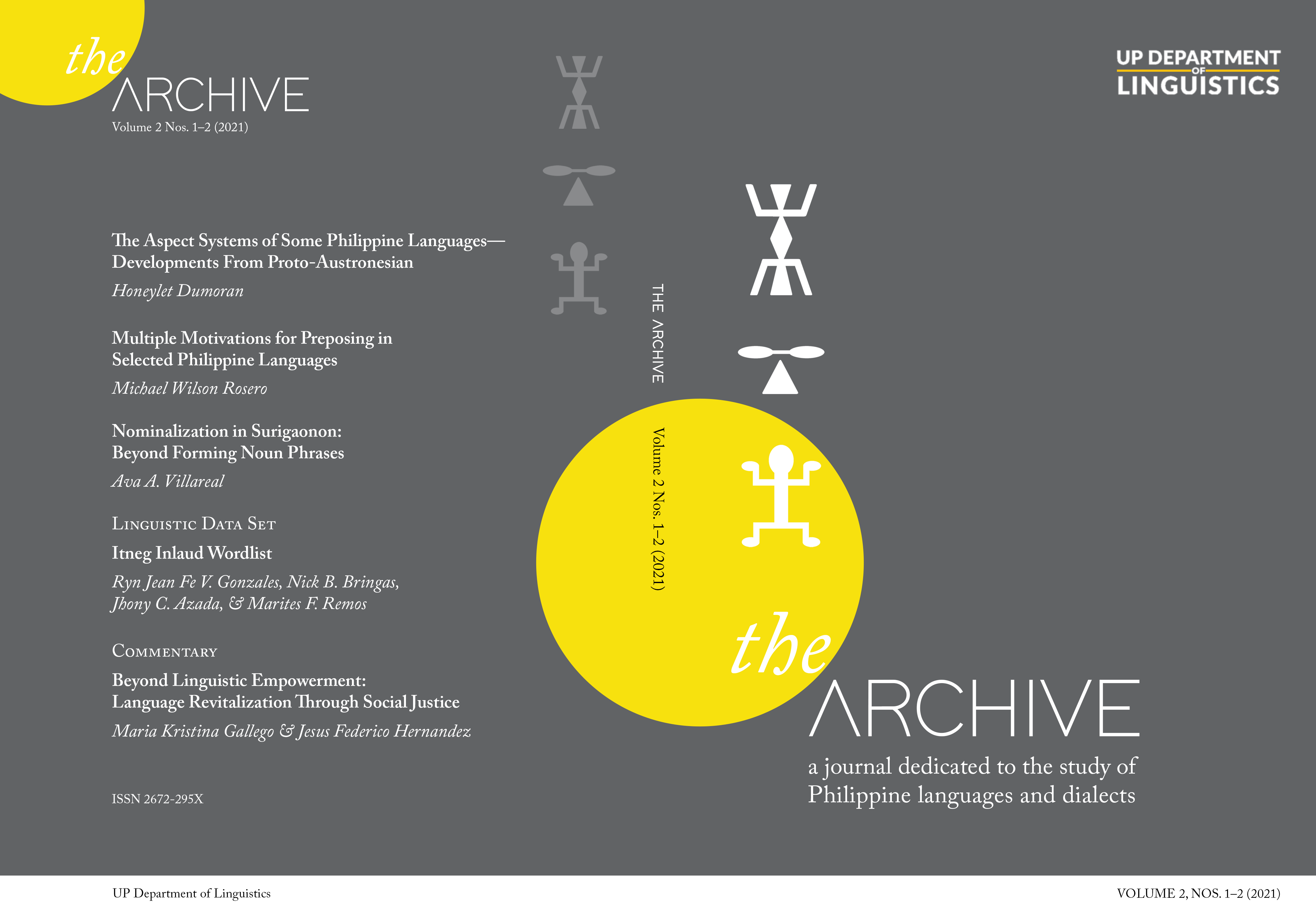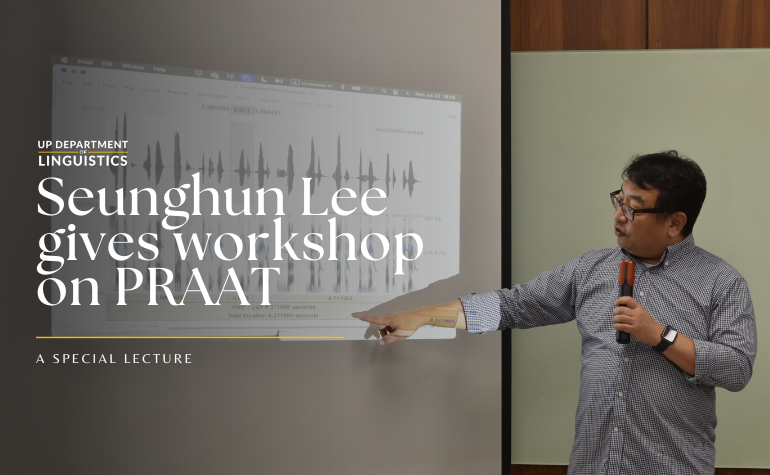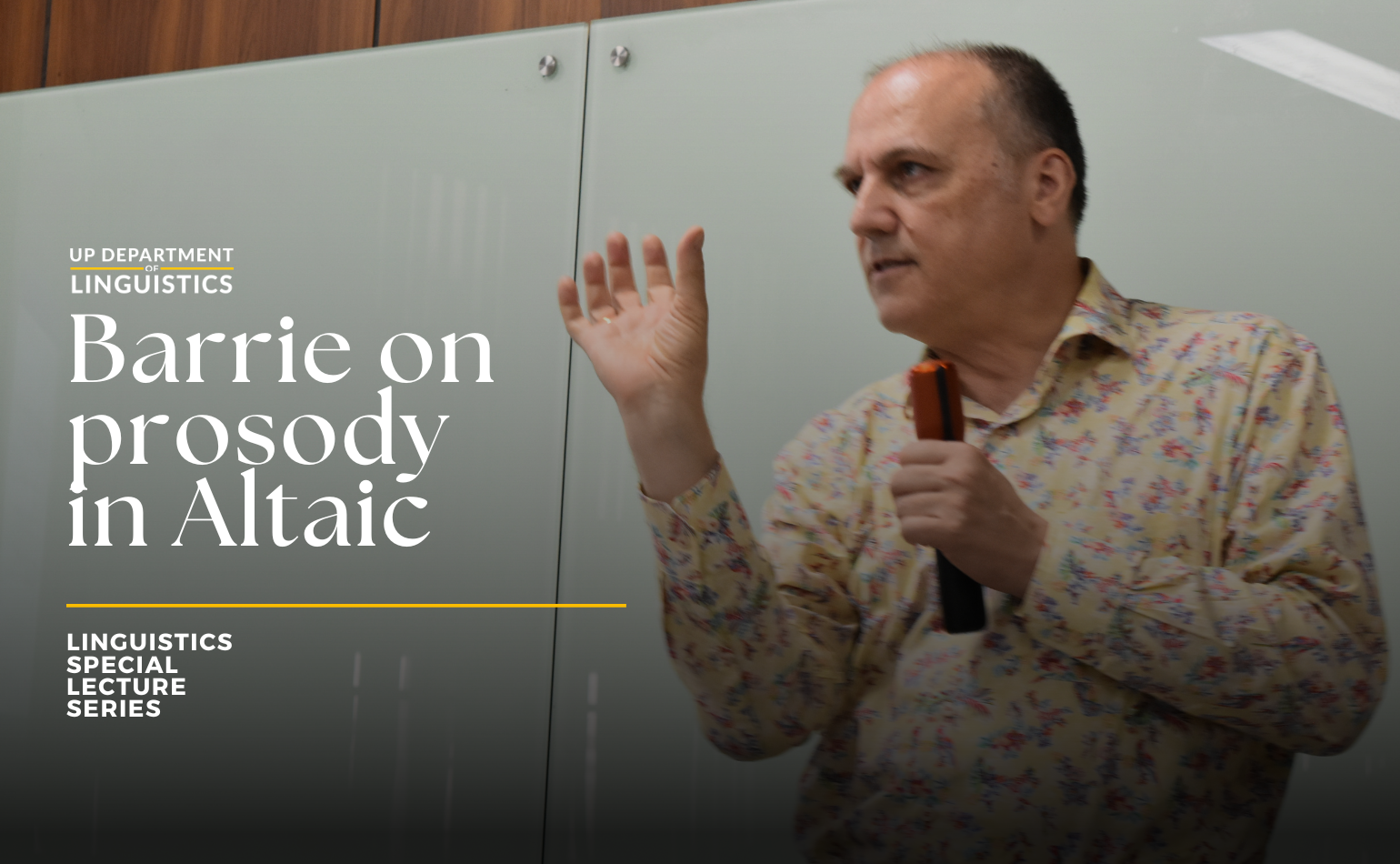
The Archive, the official publication of the UP Department of Linguistics, released its second regular issue, featuring recently-accomplished research projects on several Philippine languages, representing the current research agenda and mandate of the Department during its first century of existence. This volume contains three original research articles, a data set, and a commentary.
The first article is Honeylet Dumoran’s “The Aspect Systems of Some Philippine Languages—Developments from Proto-Austronesian.” Her work reexamines the aspect systems of select Philippine languages as compared with the putative ancestral morphology in Proto-Austronesian (PAn) and Proto-Extra-Formosan. The languages included in the study are Cebuano, Kapampangan, Northern Catanduanes Bikol, Salug-Subanen, Talaandig-Binukod, Tuwali Ifugao, and Waray, which represent disparate microgroups and various geographic locations in the country. She infers that there may be three ways by which the aspect systems of the languages developed from PAn, characterized by innovations and retentions, resulting in their current forms. She also explains how the forms of the aspectual systems in these languages have developed similarly or differently.
The second article is Michael Wilson Rosero’s “Multiple Motivations for Preposing in Selected Philippine Languages.” In this paper, he offers a fresh perspective on the analysis of word order in Philippine languages by comparing preposing mechanisms in Kana, a Cebuano dialect, with Chavacano, Ilokano, Tagalog, and Waray. Using statistical frequency analysis and concepts in functional linguistics and pragmatics, he forwards that Chavacano, Ilokano, and Tagalog follow the predicate-initial word order typology common among Philippine-type languages (VSO/PAO) while Kana and Waray deviate from this by favoring pronominal preposing (SVO/APO), as evidenced by the frequency of occurrence of preposed constructions, found to be occurring more frequently than the basic postposed construction.
The third article is Ava Villareal’s “Nominalization in Surigaonon: Beyond Forming Noun Phrases.” Using the generative grammar framework, she enumerates the syntactic processes and semantic/lexical bases of Surigaonon nominalization and how it contributes to the modification of basic sentences and the corollary formation of complex sentences. This work is a contribution to the ongoing dialogue on the syntax of complex sentences among Bisayan languages—of which Surigaonon is a member—and among Philippine languages in general and further aims to utilize this linguistic theoretical knowledge to more applied uses such as pedagogy, community-based language documentation and description, and Philippine comparative linguistic research.
The issue also contains a wordlist of the core vocabulary of Itneg Inlaud, a critically endangered language spoken in the valleys of Northern Luzon. The data set was prepared by Ryn Jean Fe V. Gonzales, Nick B. Bringas, Jhony C. Azada, and Marites F. Remos, based on their extensive field work for language and culture documentation of the said language. Not only is the data set valuable for encapsulating the cultural and societal realities of the speech community, it is also notable because of how the researchers used the latest technological advancements to document the language, at a time when linguistic field research was severely limited due to the COVID-19 pandemic. This document offers various alternatives and effective methods in eliciting linguistic data that remain within the context of the current situation and sociocultural experiences in the Philippines.
The last article in the current issue is a commentary titled, “Beyond Linguistic Empowerment: Language Revitalization Through Social Justice” written by Maria Kristina Gallego and Jesus Federico Hernandez. The authors talk about the issues of language documentation, revitalization, and endangerment, guided by the social justice framework. They argue that languages should not be set at odds against one another and that multilingualism is never a hindrance to maintaining the rich linguistic repertoires of the speakers. Based on their own experiences and observations on the language revitalization efforts of Ibatan, spoken in Babuyan Claro Island, they call for linguists to conduct research that is more conscientious of the current plight of the language speakers, especially those who comprise the minority and minoritized ethnolinguistic groups. This can be done by looking at the extra-linguistic factors that play a part in the collective experience of the marginalized community, which when addressed leads to true empowerment; and hence, a more effective language revitalization will be achieved.
Editor-in-chief Jem Javier notes that the contents featured in this issue “are a reflection of the mandate and research agenda of the institution: Philippine diachronic, comparative, and structural linguistics; Philippine language documentation and description; and application of theoretical linguistic knowledge to contributing to solving various linguistic issues in the country” (p. x).
This issue is helmed by Asst. Prof. Jem Javier (editor-in-chief), Asst. Prof. Divine Angeli Endriga (managing editor), James Dominic Manrique (copyeditor, layout, and cover designer), with the technical/administrative assistance of Dustin Matthew Estrellado and Victoria Vidal. This latest issue can be accessed via this link.
The Archive was originally published in the 1920s by Otto Johns Scheerer as a repository for working papers of the Department’s graduate students. It now publishes research outputs in three different categories: the Regular Issue, which is the peer-reviewed publication for original works dealing primarily but not exclusively with Philippine languages and dialects; the Special Publication, which is a venue for publishing single, extensive works on Philippine languages, translations, and other similar works; and the Classics series, which reprints monumental works in Philippine linguistics that paved the way for further research in the field and continue to influence current studies on Philippine languages.
The Archive accepts submissions all year round. It is officially hosted by the UP Diliman Office of the Vice-Chancellor for Research and Development through the UP Diliman Journals Online website, where previous and current issues of the journal may be freely accessed and downloaded. More information about the journal and submission guidelines are available through this link.
Published by UP Department of Linguistics



